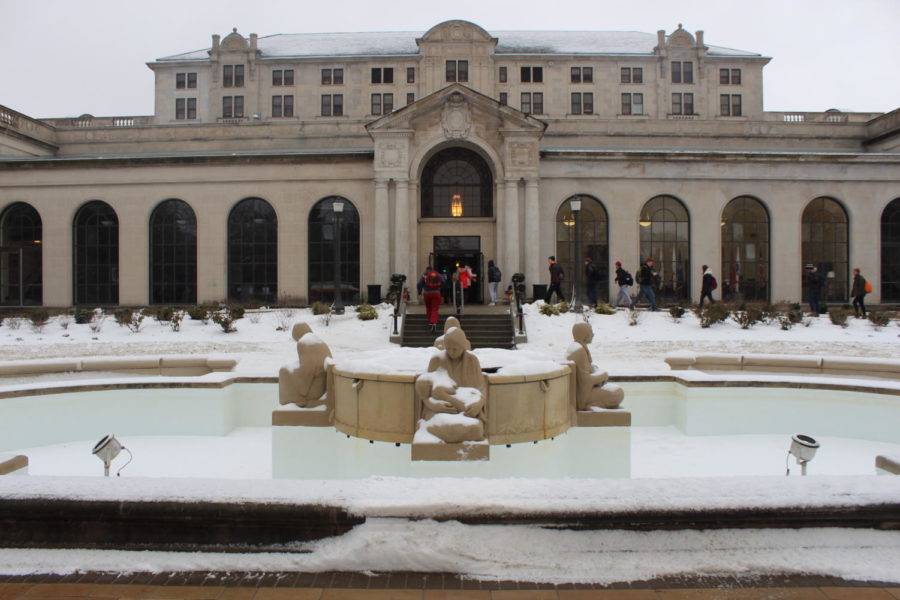Better expectations of Memorial Union expansion explained at open forum
Students walk passed the snow-covered Fountain of the Four Seasons into the Memorial Union on Jan 25. The campus was covered with 1-3 inches of snow overnight, which continued through the morning.
March 2, 2017
Early next week, the students will choose whether to see a renovated and expanded Memorial Union and have an increased student fee or be content with its current state.
The Memorial Union Student Advisory Committee joined Thursday evening in hope of persuading individuals to vote for the renovations.
Vivek Lawana, president of the Graduate and Professional Student Senate, began the presentation by presenting the informative powerpoint that contained pictures of what the Memorial Union would look like after the completion of the project and reasons for the project to happen.
Lawana stated reasons as to why the project should be given the OK, including insufficient space.
Other panelists agreed with Lawana that there are limited seats in the Memorial Union during lunch and dinner times, and many people struggle to find somewhere to sit.
He also said the additional space could serve as a designated spot for study groups.
“With the expansion, a lot of areas will be larger and much easier to move around in,” Maneesh Pillai, student community adviser, said.
The committee hopes to see the expansion lead to more student office spaces for clubs and organizations on campus, as well as veterans’ resources offices.
“If you have a club, you want to have office space if you can,” Lawana said.
The committee members all could agree that the expansion could lead to additional spots for studying, which is something Lawana could relate to.
“It so difficult for me to find a spot to sit and study,” he said.
The expansion would see an increased size of the welcome and visitor centers, adding more meeting room especially for clubs, organizations and any events.
The expansion of the multicultural services would bring the Office of Multicultural Affairs from Student Services to the Memorial Union.
“The beauty of renovation is that it’s not disrupting the current architecture of this building,” Pillai said.
The project would be completed within five phases, which would last from 36 to 45 months.
The project in its entirety would cost $65 million, and students could expect to see their student fee increase $72 over two years.
Students would see a $30 increase in the fall of 2018 and a $42 increase in the fall of 2019.
The referendum has students talking, and that’s what the committee appreciates.
“This why I loved this project, is how students have been so involved with this,” Sarah Heller, student committee adviser, said.
Students will make their final decision on the matter during the Student Government elections on Tuesday and Wednesday, when the referendum will appear on the ballot.
“The conversations doesn’t end. March 7 and 8 is when it really starts,” Pillai said.







